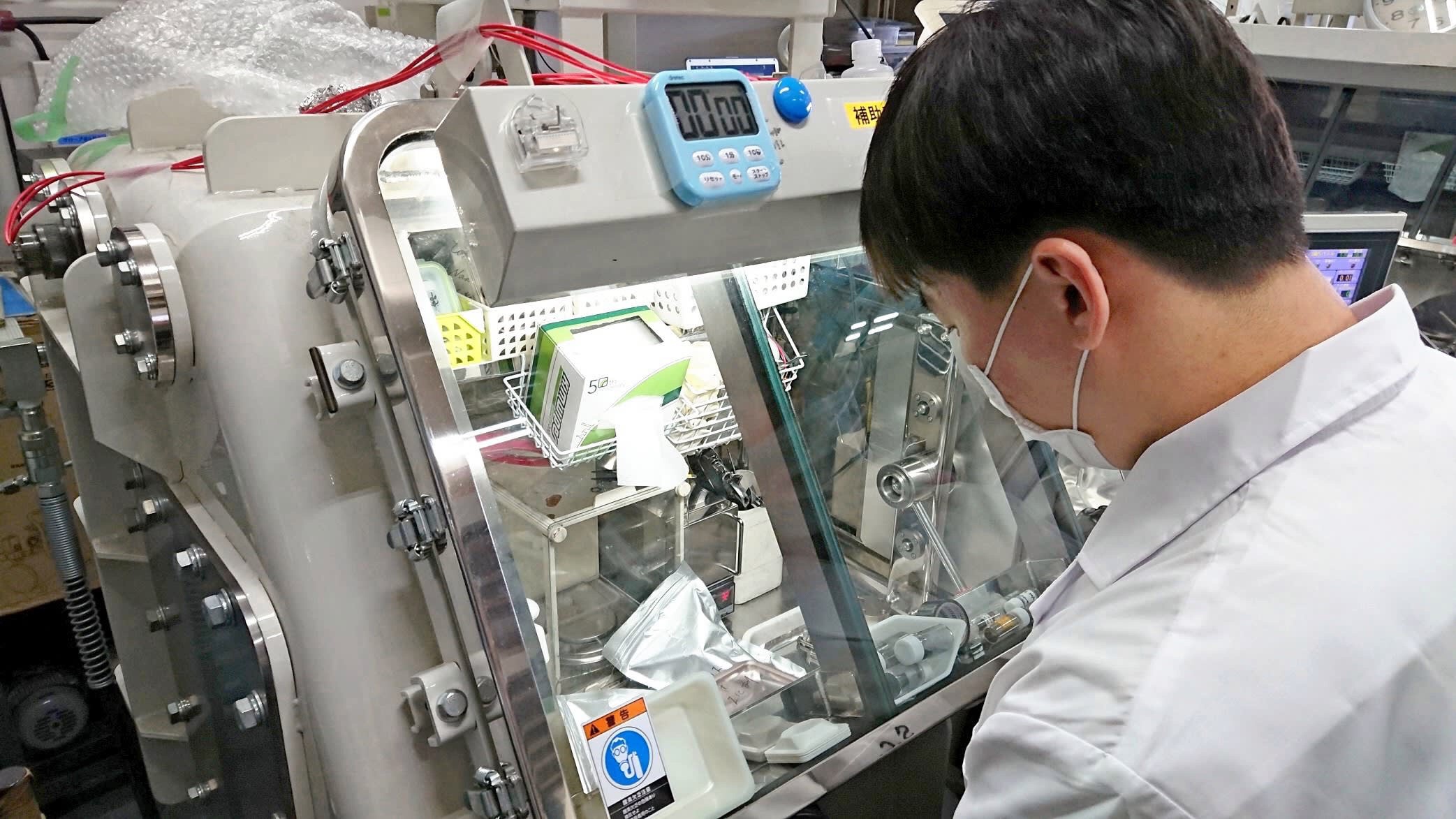
Researchers at Kyoto University and Toyota Motor are working on a new type of rechargeable battery based on fluoride. (Photo courtesy of Kyoto University).
Toyota Announces Fluoride-Ion Solid State Battery
This week, researchers at Kyoto University who are working in conjunction with Toyota
announced the development of a fluoride-ion solid state battery with up to 7 times the energy density of a conventional lithium-ion battery, according to Nikkei.
Solid state batteries
require no complex cooling systems because they are far less subject to thermal runaway incidents that can lead to fires or explosions in conventional lithium-ion batteries.
Higher density
means more power and longer range. The lack of a cooling system means lower costs. Those are both good news.
The anode for the new batteries
is composed of fluorine, copper, and cobalt.
At a time when battery manufacturers and EV makers are striving to eliminate cobalt from their batteries, that’s not good news.
We do not know as of yet what percentage of each element is used for the anode.
The cathode is made primarily of lanthanum.
Fluoride batteries offer high energy densities, but often need to be heated in order to work properly.
The researchers
claim their anode solves that problem, but there is no information about how the fluoride batteries perform in winter.